Despite warning from lawyers, EU governments push for mass surveillance of our digital private lives
Whilst several EU governments are increasingly alert to why encryption is so important, the Council is split between those that are committed to upholding privacy and digital security in Europe, and those that aren’t. The latest draft Council text does not go anywhere near far enough to make scanning obligations targeted, despite clear warnings from their own lawyers.
Filter resources
-
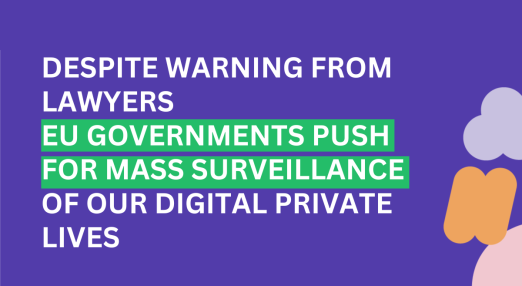
Despite warning from lawyers, EU governments push for mass surveillance of our digital private lives
Whilst several EU governments are increasingly alert to why encryption is so important, the Council is split between those that are committed to upholding privacy and digital security in Europe, and those that aren’t. The latest draft Council text does not go anywhere near far enough to make scanning obligations targeted, despite clear warnings from their own lawyers.
Read more
-

Civil liberties MEPs warn against undermining or circumventing encryption in CSAR
MEPs from the European Parliament’s Civil Liberties committee have thrown down the gauntlet with their amendments to one of the EU’s most controversial proposals: the Child Sexual Abuse Regulation (CSAR). These amendments show a clear majority for fully protecting the integrity of encryption. Content warning: contains discussions of child sexual abuse and child sexual abuse material
Read more
-

As AI Act vote nears, the EU needs to draw a red line on racist surveillance
The EU Artificial Intelligence Act, commonly known as the AI Act, is the first of its kind. Not only will it be a landmark as the first binding legislation on AI in the world – it is also one of the first tech-focused laws to meaningfully address how technologies perpetuate structural racism.
Read more
-
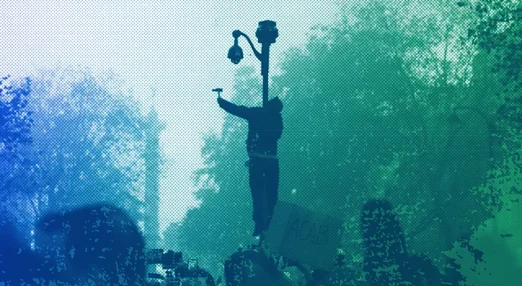
Retrospective facial recognition surveillance conceals human rights abuses in plain sight
Following the burglary of a French logistics company in 2019, facial recognition technology (FRT) was used on security camera footage of the incident in an attempt to identify the perpetrators. In this case, the FRT system listed two hundred people as potential suspects. From this list, the police singled out ‘Mr H’ and charged him with the theft, despite a lack of physical evidence to connect him to the crime. The judge decided to rely on this notoriously discriminatory technology, sentencing Mr H to 18 months in prison.
Read more
-

Police cameras won Big Brother Awards in Czechia
EDRi member in the Czech Republic Iuridicum Remedium handed out its anti-prizes for the eighteenth time in March 2023. 2022 was exceptional: one of the "awardees" came for the award, and the others had to express themselves under the pressure from the media.
Read more
-
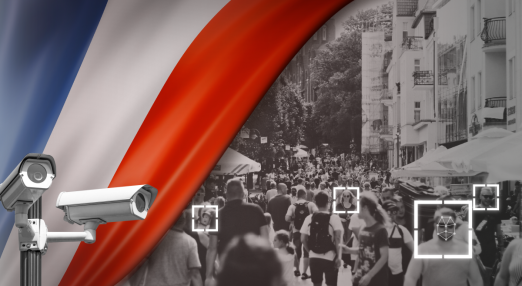
France becomes the first European country to legalise biometric surveillance
EDRi member and Reclaim Your Face partner La Quadrature du Net charts out the chilling move by France to undermine human rights progress by ushering in mass algorithmic surveillance, which in a shocking move, has been authorised by national Parliamentarians.
Read more
-
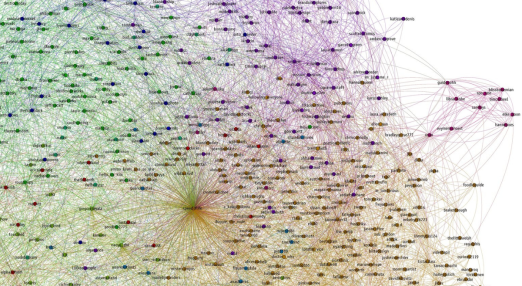
“Social media profiles and phone contacts” used as proof of identity for deportations
Thirteen non-EU countries sometimes accept “social media profiles and phone contacts” as evidence of identity for the purpose of deportations, according to an internal European Commission assessment of third country cooperation on readmission.
Read more
-

Manchester 10: Open letter asks Andy Burnham to tackle discriminatory ‘gang’ surveillance
Advocacy groups and human rights organisations have written to the Manchester Mayor, Andy Burnham, and the Chief Constable of Greater Manchester, Stephen Watson, to ask them to investigate discriminatory police practices in the wake of the conviction of ten young Black men, known as the Manchester 10.
Read more
-

Mapping the impact of biometric surveillance and social media platforms on civic space
The European Center for Not-for-Profit Law is concerned about safeguarding human rights and limiting the negative impacts of security technology on civil society. Therefore, they launched a report with partners as a step to investigate how technologies introduced in the name of security and counter-terrorism will impact civil society.
Read more
-
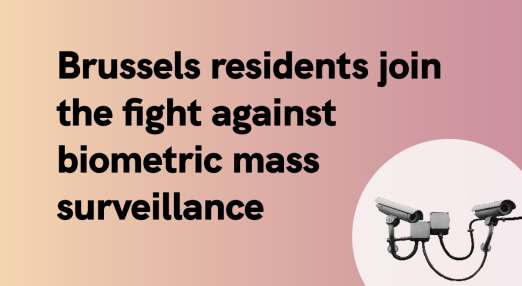
Protect My Face: Brussels residents join the fight against biometric mass surveillance
The newly-launched Protect My Face campaign gives residents of the Brussels region of Belgium the opportunity to oppose mass facial recognition. EDRi applauds this initiative which demands that the Brussels Parliament ban these intrusive and discriminatory practices.
Read more
-
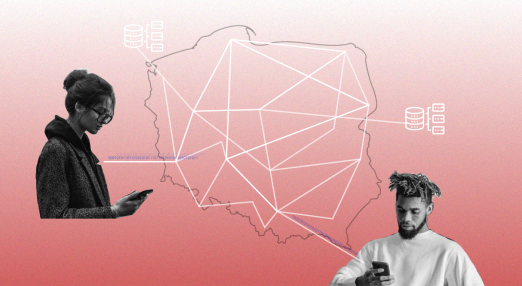
Poland: the government declares no further extension of data retention obligation
Data retention obligation will not be further extended in Polish law on electronic communication. However, the current, unlawful scope of telecommunication data retention remains unchanged.
Read more
-

TikTok’s “Focused View”: the creepy new feature aims to monetise your emotions
Ever heard of TikTok’s “Focused View”? With this new feature launched in October 2022, TikTok claims it can track your emotions to sell ads. We have our doubts if that’s even possible – but it certainly is invading your privacy to drive profits. Here is why, and what it means for users in Europe.
Read more
